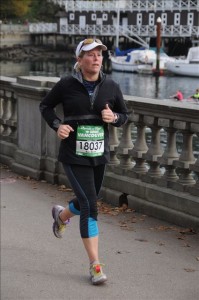 In a recent post, I outed myself as a recovering Effort Queen. I like working my body hard. I really like the intensity of throwing myself at a challenge and meeting it head on. Those qualities have carried me a long way. But there has sometimes been a cost to my approach – most immediately in physical terms, but often in my emotional and mental well-being too. I’m learning to balance those more effort based qualities with a sense of flow, spaciousness and sustainability. And it feels really, really good!
In a recent post, I outed myself as a recovering Effort Queen. I like working my body hard. I really like the intensity of throwing myself at a challenge and meeting it head on. Those qualities have carried me a long way. But there has sometimes been a cost to my approach – most immediately in physical terms, but often in my emotional and mental well-being too. I’m learning to balance those more effort based qualities with a sense of flow, spaciousness and sustainability. And it feels really, really good!
There are some people for whom my words may not make sense in a physical context. As I look around me at my friends, family and the people with whom I work, I realize that I’m not the only one driven to push, sometimes beyond a point that is structurally wise. In our fitness regimes and in the activities we like to do – it’s all about ” Go! And go HARD!” It’s important to understand though, that the recovery process in the body is just as important as the “push” phase. Yin & Yang – one phase needs the other to achieve best results for either. Many of us seem to have lost one side of that equation. Is recovery a lost art?
Recovery: 1. The act or process of becoming healthy after an illness or injury: the act or process of recovering 2. The act or process of returning to a normal state after a period of difficulty (Merriam Webster Dictionary)
What does recovery mean to you? For many people, recovery is about rest, relaxation and doing nothing. For me, I guess it depends on what I’m trying to recover from. Because it’s very likely that what will make me feel better and more like myself is different depending on what I’ve done. We tend to think doing nothing is the key – but unless that nothing is “sleep,” then often some kind of active choice is a good choice to recover well. Here’s what I mean:
 If I’ve been silly and stayed out past my bedtime, then likely the only thing that will help me recover is SLEEP. In that case, my best bet is to cancel whatever I had planned for the next evening, and hit the hay early. A few extra z’s always helps me to feel more refreshed and ready for the next day.
If I’ve been silly and stayed out past my bedtime, then likely the only thing that will help me recover is SLEEP. In that case, my best bet is to cancel whatever I had planned for the next evening, and hit the hay early. A few extra z’s always helps me to feel more refreshed and ready for the next day.
If I’ve overworked my body, there will always be a temptation to lie down until the pain goes away. But I’ve learned over the years that the only way to feel better is to move gently and differently than however I moved to create the discomfort in my body. If I choose stillness, all I get is stiff and grumpy. For most of us, there is movement we can do that will help us “re-set” our systems to support us better, even when we’re suffering the discomfort of having worked too hard the day before. (A good movement instructor or physio will be able to help you figure out what works best for you, if you want help). I try to allow myself a little more time for my warm-up and cool-down too.
If I’m stressed out, it’s easy to want to just plop down in front of the TV. But that doesn’t really help me recover. The TV helps to numb things out for a while, but without some kind of movement, my body can’t process that stress to return to a better balance in my nervous system. When I’m tense, a walk in the woods with my dog is the best cure. (Although, when my son was still a baby, and I needed to blow off steam, a good bout of kick-boxing was often just what I needed!) Meditation can be a powerful tool for clearing and centering the mind. Movement helps integrate that peacefulness into our whole beings.
Here’s the thing – as a society, we seem to have adopted an all or nothing approach to everything we do. It’s 100% or not at all. ON or OFF. The problem lies in that our bodies aren’t built to work that way! In our efforts to be massively productive 100% of the time, we’ve stopped paying attention to the fact that, in addition to a certain amount of physical, emotional and intellectual stress, our minds, bodies and spirits need space and recovery time to thrive. We simply expect our bodies to soldier on and push through whatever isn’t working so we can continue to do whatever it is we’re trying to do. We deplete our energy reserves, our muscle stores, and shift our nervous systems almost permanently into the “fight or flight” response. We feel superhuman for a while – whatever doesn’t kill you makes you stronger, right? But eventually, that approach takes a toll: fatigue from which you can’t seem to recover, unexplained weakness, injuries and illness.
Most of us could use a good hard look at our lifestyles, prioritizing the important things and letting everything else go. This seems to be a constant process for me. I want to do EVERYTHING! And, being a somewhat competitive individual, I tend to want to be really good at whatever I choose to do. Often that means I’m working too hard at too many things. I have to re-evaluate frequently – and decide which things are really supporting my goals and vision, which things I really enjoy and which things I can just let drop. When I purge the stuff that isn’t serving me well, I find that I can enjoy the things I am doing more – and I actually do them better too! Often, the act of play – with no agenda, no timetable, no evaluation – is just what I need to return to every aspect of my best self.
What about you? Is recovery a lost art in your world? Do you create time in your life for recovery? What are your favourite strategies for re-setting your body, mind and emotions? Please share your thoughts in the comments below – we can all learn from and support each other!
